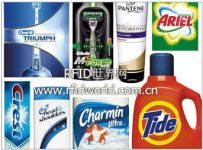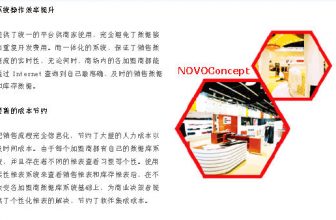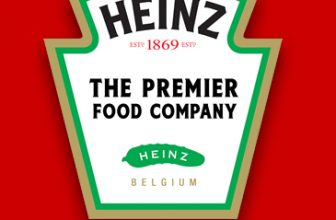
Procter & Gamble announced the cessation of labeling projects for promotional items
[ad_1]
Procter & Gamble has always been a pioneer in the use of EPC technology in the supply chain, and now the company has stopped labeling promotional products sent to Wal-Mart. Kim Zimmer, global EPC RFID technology and operations officer of P&G, sent an e-mail to the company’s contract manufacturers this week saying: P&G has decided to terminate the EPC labeling project for Wal-Mart’s promotional items, effective today.
The e-mail instructs the contract manufacturer not to order any EPC RFID tags, nor to attach existing tags to the products. P&G also requires these companies to return notebooks, handheld RFID readers, wireless routers and tags to the P&G EPC laboratory. These products are provided by Procter & Gamble to contract manufacturers so that they can obtain EPC data before shipping the products to Wal-Mart.
Paul Fox, P&G’s global head of external relations, confirmed this information. “EPC has many potential applications in the supply chain, which not only benefit manufacturers such as Procter & Gamble, but also retailers, and most importantly, shoppers can also benefit from it,” he said. “We have been studying these applications for nearly 10 years. We recognize that to obtain sustainable benefits, EPC applications require in-depth cooperation between manufacturers and retailers, and are committed to using the executable visibility provided by EPC to change business processes.”
“One of the applications is to improve the effectiveness of promotions. Our joint work with Walmart shows that the EPC application can improve the effectiveness of promotions, promote sales, and most importantly, increase the satisfaction of shoppers. This collaboration with Walmart The verification work is now over. But we will continue to work with our retail partners on other projects that benefit shoppers.”

Procter & Gamble puts labels on promotional items to maximize promotional purposes
Fox stated that it is impossible for P&G to give up its EPC job. The company and its contract manufacturers will continue to label some of the boxes sent to Wal-Mart.
“We are still convinced that EPC has far-reaching significance to the retail/consumer packaging product industry,” he said. “Although we have completed the verification project of EPC application and promotion effectiveness, we will also cooperate with Wal-Mart in other EPC projects.”
Promotional item management is regarded as one of the main benefits of CPG company EPC labeling. The data provided by Wal-Mart can show whether the store warehouse stores promotional items and when they should be moved to the store. When the store launches relevant promotional activities, the turnover of promotional items in the store can be increased to 20%.
A P&G contract manufacturer who requested anonymity stated that P&G did use the EPC data received from Wal-Mart to instruct salespeople to go to some stores where products were on the shelf. What made the company frustrated was that Wal-Mart’s sales assistants did not follow suit. The data takes corresponding actions to improve the synergy of promotional items.
The contract manufacturer said: “Procter & Gamble is required to label and pay its own costs. I think they feel that Wal-Mart should do more than just realize their own benefits. If Wal-Mart does not act according to the data, So what’s the point of labeling?”
Like Procter & Gamble, Wal-Mart also emphasized that it will continue to cooperate with its major business partners. Wal-Mart spokesperson Dan Fogleman said: “P&G is still our valuable partner. When we expand and research EPC applications, we cannot discuss all aspects of cooperation, but we will work together to promote wider applications.”
John Seaner, vice chairman and general manager of EPCglobal US, praised P&G’s efforts in EPC RFID applications.
“For any new technology,” Seaner said, “It has never been easy to achieve universal application, and this is the same for EPC and RFID. If there is no pioneering effort like the other companies in the P&G and EPCglobal team It is impossible for us to see the breadth and diversification of RFID applications today. We will continue to see EPC applications in multiple industries, such as medical, chemical, and aviation, such as asset tracking, processed product monitoring and traceability applications.
[ad_2]






